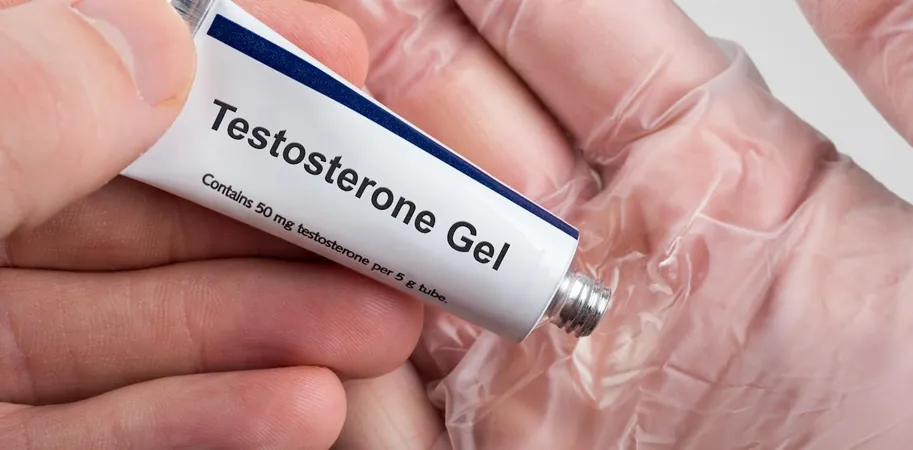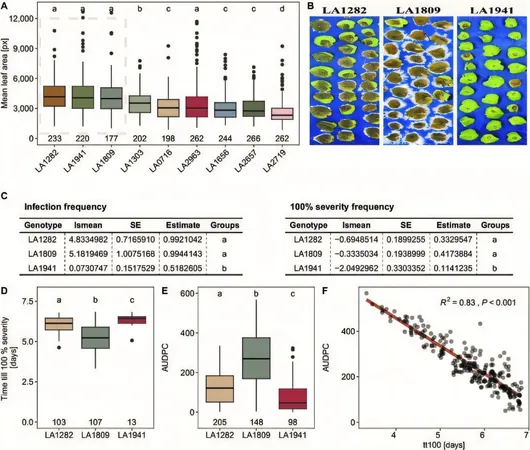
Are Younger Men Making a Dangerous Gamble with Testosterone Therapy? Here’s What You Need to Know!
2024-11-18
Author: Jacob
Introduction
Recently, a growing trend among younger men has emerged, with many turning to testosterone replacement therapy (TRT) in hopes of enhancing their mood and building muscle mass. The surge in testosterone therapy interest can largely be attributed to both media portrayals and the influence of social media personalities promoting its benefits.
Understanding Testosterone
Testosterone, often dubbed the "male hormone," plays a pivotal role in men’s overall health, impacting crucial areas such as muscle growth, mood stability, sexual drive, and energy levels. At first glance, it seems reasonable to consider testosterone supplementation when levels dip, but the question remains: is this approach truly the best solution?
Potential Benefits of TRT
Numerous studies have indicated that TRT can deliver significant benefits for men suffering from testosterone deficiency, including increased muscle mass, decreased fat, enhanced sexual desire, and improved overall quality of life. However, most of this research has been concentrated on older men, leaving critical gaps regarding the implications of TRT for younger males.
The Decline of Testosterone Levels
As men reach their 30s, testosterone levels generally begin to decline at a rate of approximately 1-2% per year. This depletion accelerates due to certain health conditions such as obesity, diabetes, and chronic inflammatory conditions—all of which tend to accumulate with age. However, the decline in testosterone is not an inevitable part of aging for every man and is largely influenced by pre-existing health issues.
Low Testosterone in Younger Men
While testosterone deficiency in younger men often requires medical attention, it is relatively uncommon and can be attributed to specific genetic conditions like Klinefelter syndrome, characterized by males possessing an extra X chromosome that hampers testosterone production. Interestingly, recent studies have illuminated a concerning trend: young men today are exhibiting lower testosterone levels than their counterparts from previous generations. This decline may be attributed to a mix of environmental and lifestyle changes, including increased stress, poor dietary habits, sedentary lifestyles, and rising obesity rates.
Environmental Factors
Moreover, the pervasive presence of endocrine disruptors found in common products, including plastics and processed foods, may also be contributing to these shifts. The extent to which this generational decrease impacts long-term health outcomes remains unclear, but it is worth noting that even lower testosterone levels may still fall within the "normal" range.
Considering Lifestyle Changes
While TRT might seem like an appealing fix for symptoms like fatigue, mood swings, and decreased muscle mass, it's crucial for young men to first consider the root causes of their low testosterone. Lifestyle adjustments such as healthier eating, stress reduction, consistent exercise, and adequate sleep can lead to positive improvements in hormone levels without the need for medical intervention.
The Hidden Dangers of Testosterone Therapy
Historically, testosterone therapy has been associated with elevated risks of prostate cancer and heart attack. However, recent clinical trials have largely dispelled these concerns, though most safety studies have focused on older populations. Young men, particularly those under 30, have been underrepresented in research, leading to uncertainty regarding the risks they face with TRT.
Complexity of Testosterone Levels
The complexity of determining "normal" testosterone levels adds another layer of concern. Testosterone levels naturally fluctuate based on a variety of factors, including time of day, seasonal changes, and even acute stressors like illness. If testosterone tests are mismanaged, this could result in unnecessary and potentially harmful treatment.
Risks of Excessive Testosterone
Moreover, boosting testosterone levels excessively can lead to a higher red blood cell count, thickening the blood and increasing the likelihood of potentially grave outcomes such as hypertension and blood clots, which in turn can precipitate heart attacks or strokes. Additionally, excessively high testosterone levels can prompt cardiac hypertrophy, which may raise the risk of associated cardiovascular diseases.
Fertility Considerations
For younger men considering future parenthood, TRT can also have dire consequences, as it tends to suppress the body’s natural testosterone synthesis and disrupt hormone signals essential for producing sperm. While some may find that fertility rebounds after stopping TRT, others may face irreversible infertility.
Cosmetic Risks
There are also cosmetic risks associated with heightened testosterone levels. An increase in hormone production can lead to excessive oil secretion in the skin, prompting severe acne that may bring about both physical discomfort and psychological stress. Furthermore, elevated testosterone may accelerate male pattern baldness in genetically predisposed young men, potentially damaging their self-image.
Conclusion
In conclusion, before opting for testosterone replacement therapy, young men should thoroughly assess their hormone levels in consultation with a healthcare provider and weigh the potential risks against the benefits. Recognizing that lifestyle factors can significantly affect testosterone levels, small yet impactful changes to daily habits may serve as a more effective first line of approach than embarking on TRT. If TRT is pursued, routine health monitoring is essential in order to catch any adverse effects early, ensuring overall well-being remains intact.









 Brasil (PT)
Brasil (PT)
 Canada (EN)
Canada (EN)
 Chile (ES)
Chile (ES)
 España (ES)
España (ES)
 France (FR)
France (FR)
 Hong Kong (EN)
Hong Kong (EN)
 Italia (IT)
Italia (IT)
 日本 (JA)
日本 (JA)
 Magyarország (HU)
Magyarország (HU)
 Norge (NO)
Norge (NO)
 Polska (PL)
Polska (PL)
 Schweiz (DE)
Schweiz (DE)
 Singapore (EN)
Singapore (EN)
 Sverige (SV)
Sverige (SV)
 Suomi (FI)
Suomi (FI)
 Türkiye (TR)
Türkiye (TR)